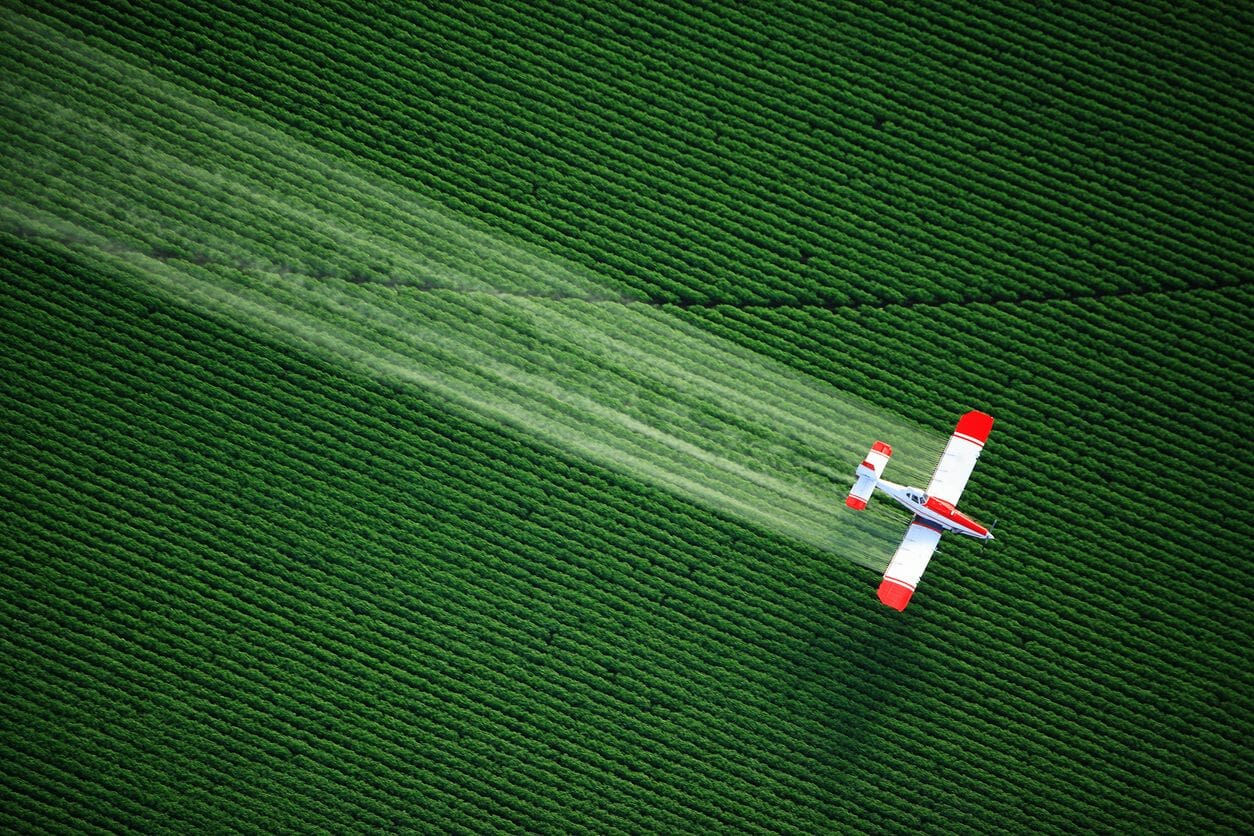Bayer held a Crop Science R&D Pipeline Showcase last week that highlighted the ag giant’s current portfolio of technology and revealed that a new herbicide is coming down the pipeline. The chemical is still in R&D and Bayer could not reveal many details about the new addition but stated that it will make its commercial debut in 2030, and will be able to battle glyphosate-resistant weeds. The new molecule is part of Bayer’s 10-year effort to discover new ways to battle weeds that are now resistant to glyphosate, which has cost the company $5.6 billion.
Bob Reiter, Bayer head of research & development, crop science, told AFN in a phone interview following the showcase that the herbicide is the product of brand new chemistry that the company has discovered with a new mode of action targeting a specific biochemical step in the target plant that no other chemistry has ever targeted before. A mode of action is the way that an herbicide affects a plant at the cellular level. New modes of action are critical as producers battle a continued uptick in herbicide-resistant weeds.
Considering the growing backlash from consumers and some farmers against the use of chemicals in crop production — including mounting lawsuits against glyphosate, Bayer’s most prominent herbicide, and Dicamba — it’s perhaps surprising to see Bayer make such a fanfare about a new chemical product and not a biological alternative. But, when asked, Reiter said biologicals were still some way away from the efficacy of chemicals in killing weeds.
“We are committed to both [chemistry and bio-based products]. We see an increasing role of biologicals and we are investing in them because different market segments have a strong interest in tapping into them,” he explained. “The reality is, though, that biologics don’t have the same efficacy as chemistries and to really have effective tools for areas like weed control, they need to still have chemistries available for farmers to use. What we are trying to do is help the grower use both. One way we do that is by having them use chemistries early on and then biologics later so that consumers have a residue-free product.”
Reiter describes biologics research as one of Bayer’s most active areas, particularly externally where many startups are researching potential solutions and trying to overcome the efficacy challenges. Bayer recently obtained worldwide exclusive distribution rights to AlphaBio Control’s bioinsecticide called Flipper that is reportedly safe for pollinators, for example. The company also has Joyn Bio, a $100 million microbe discovery platform it cofounded as a joint venture with Ginkgo Bioworks.
Hear more about the development of new crop protection products, including startups promising to increase the efficacy of bio-based offerings, at the World AgriTech Innovation Summit in San Francisco next month. On a panel entitled Crop Protection & Sustainability in Agriculture: Contradiction or Complement? Terramera, Provivi, BASF, Biotalys, and FMC Corp will all be represented.
Bayer’s chemical court battles
Although Bayer has stated that glyphosate will continue to be a player in its portfolio, Bayer has been embroiled in an ongoing legal battle over the herbicide that’s produced by Monsanto, which the company acquired in 2018. Lawsuits have claimed that Monsanto knew that its product had carcinogenic properties but sold it anyway and failed to include warnings. Over 43,000 lawsuits making similar allegations have been filed to date and over $2 billion in verdicts have piled up against Bayer.
To add to Bayer’s chemical controversy, it has also faced considerable heat lately regarding the off-label use of dicamba. The herbicide is prone to drift, according to some reports, and can destroy neighboring soybean crops. In Arkansas, two neighbors engaged in a dispute over alleged Dicamba drift damage that ended in one of the men being fatally shot.
Reports have also suggested that Dicamba is causing serious issues in particular regions where Dicamba-resistant soybeans are being planted at a high rate. During 2017, for example, 500,000 acres of dicamba-tolerant soybeans were planted in Nebraska. By the end of the year, the state extension service received nearly 350 reports of crop damage attributed to Dicamba drift. Nebraska fielded 90 complaints while Missouri and Arkansas also fielded reports.
In response to questions during the pipeline showcase regarding reports of Dicamba damage particularly in Indiana and Illinois, Bayer stated that it has experienced extremely successful market penetration during 2019 with the product and that claims about crop damage due to drift are anecdotal reports in specific geographies. It claims that across the overall market it has received low reports of damage.
The day after the showcase, however, a jury awarded plaintiff Bader Farms $15 million in compensation and $250 million in punitive damages against Bayer in a lawsuit alleging that Bayer knew there would be off-label uses of Dicamba and failed to take appropriate steps to prevent them. The plaintiff alleged that his peach orchard suffered extensive damage from Dicamba drift.
In a statement responding to the jury award, Bayer stated that Monsanto’s products were not responsible for the losses the plaintiff claimed and that it stands behind its Dicamba-based herbicide products. It also noted that farmers who use them enjoy a 95% weed control satisfaction rate.
Legal battles aside, consumers have shown a growing preference for food produced with more progressive practices over the last decade. There’s also an increasing amount of discourse regarding the importance of placing soil health above yield-focused production. Whether the tides will have shifted too drastically for Bayer’s new herbicide to succeed by the time its ready to launch in 2030 remains to be seen.
Still, Bayer seems unphased in its commitment to producing new chemical inputs.
“Chemistries are so thoroughly studied as far as safety,” Reiter says. “We have to go through multiple years and have to have a minimum of 150 studies to get registration and that bar gets higher.”
Two representatives from Bayer are set to speak at World AgriTech next month. Find out more and grab your tickets here!





